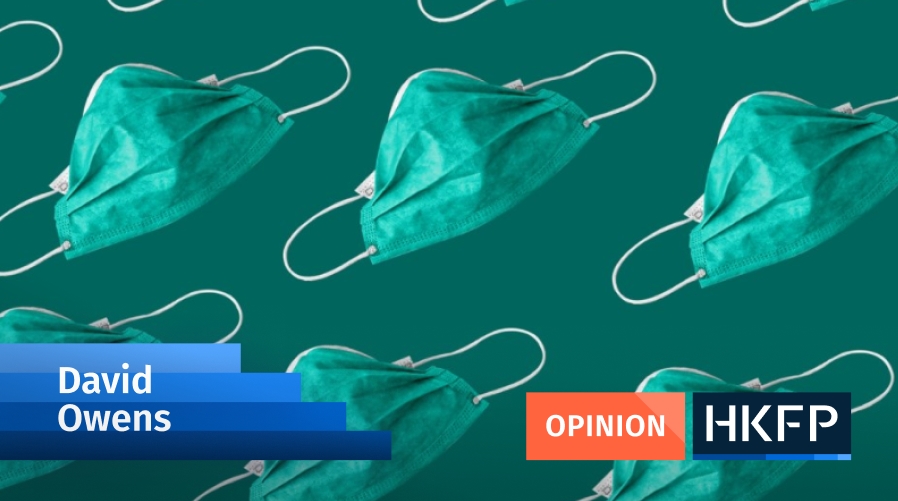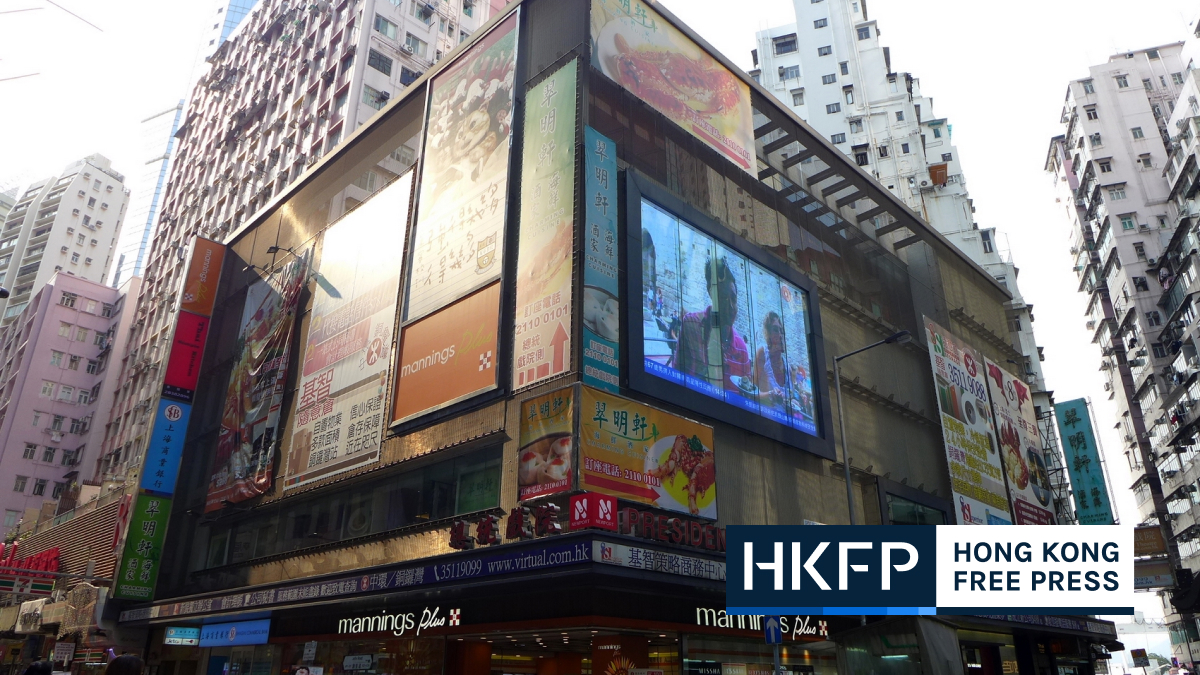Hong Kong’s government has eased restrictions on restaurants and a range of other premises as the coronavirus pandemic eases, but new rules requiring patrons to register — either through an official phone app or manually – have stirred unease among some in the wake of pro-democracy protests.
From Thursday restaurants were allowed to resume dine-in services after 6 pm, following a two-month ban on evening service, and seat up to four to a table. Gyms, beauty parlours, theme parks and cinemas also reopened after a full shutdown.

But the long-awaited relaxation came with stipulations – customers must scan a QR code on the government-designed “LeaveHomeSafe” app or register their names, contact numbers and the dates and times of their visits. Records are kept for 31 days if no outbreak is recorded. If a case of Covid-19 is detected, the data can be retained for seven years and used for contact tracing.
One personal trainer told HKFP he had decided to close his gym in protest at the policy, which he saw as an infringement of rights.
Henry Tong, owner of Wild Gym Fitness and Therapy, announced last week he was shutting down his Sheung Wan-based centre. In a Facebook post, the gym said it was unwilling to collect and hand in customers’ information, adding it would not be an “accomplice to tyranny.”

Tong, 39, told HKFP he was concerned about access to information in the government app, whose stated purpose is to record people’s visit history during the pandemic. He also felt uncomfortable about the alternative of recording the personal data of his clients manually, citing concerns about the possible use of such information by the authorities.
“The app’s requests for permission to access information exceeded its purposes claimed by the government,” he said. “How will the government handle [customer] information? There is no proof where the information will go.”
Tong and his wife Elaine To were among the first to be charged with rioting in connection with the anti-extradition bill protests of 2019. The pair – who got married in the early months of the unrest – were eventually acquitted last July. But their personal information was disclosed on an anti-protest doxxing website.
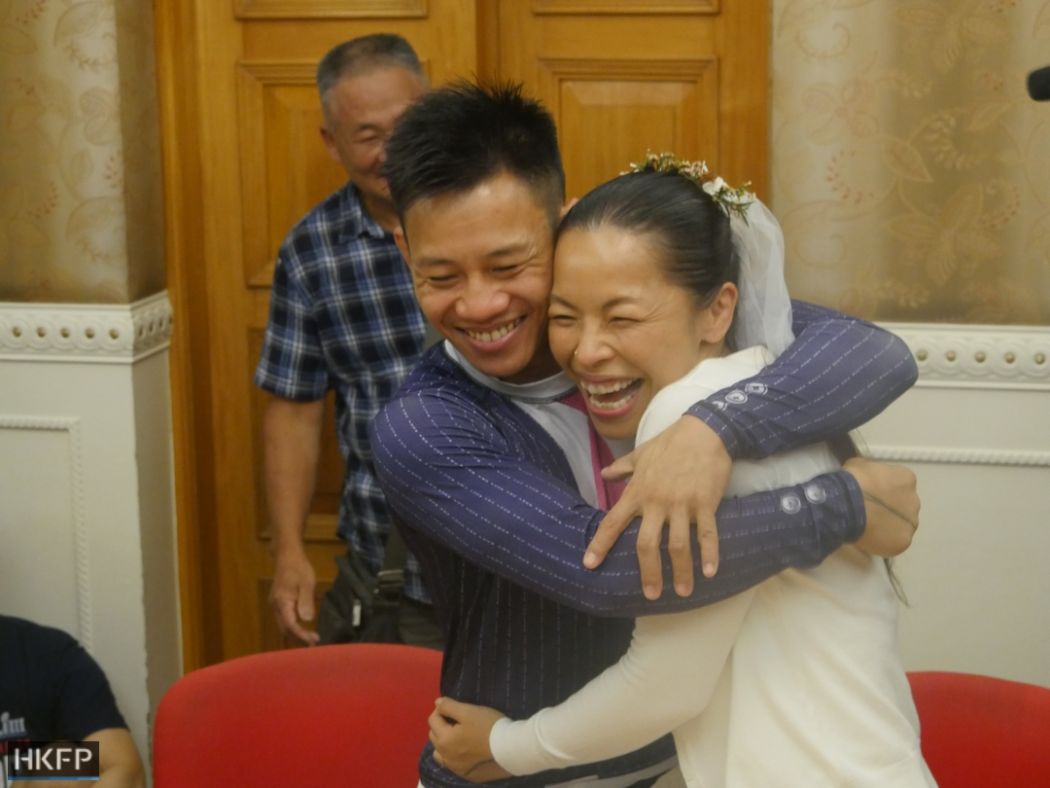
Tong said he believed the government was to blame for the spread of the coronavirus because it had resisted calls for a full border closure last year and exempted some groups from the two-week compulsory quarantine. He said gym owners like himself now had to “bear the consequences.”
“[The authorities] are infringing our rights. We should not continue following the government’s so-called anti-epidemic policies,” he said.
The LeaveHomeSafe app launched last November collects data including name, telephone number, email address and records of visits . It previously required users to give permission to view WiFi connections and access USB and photo storage. But these requirements were later removed amid growing concerns about data privacy.
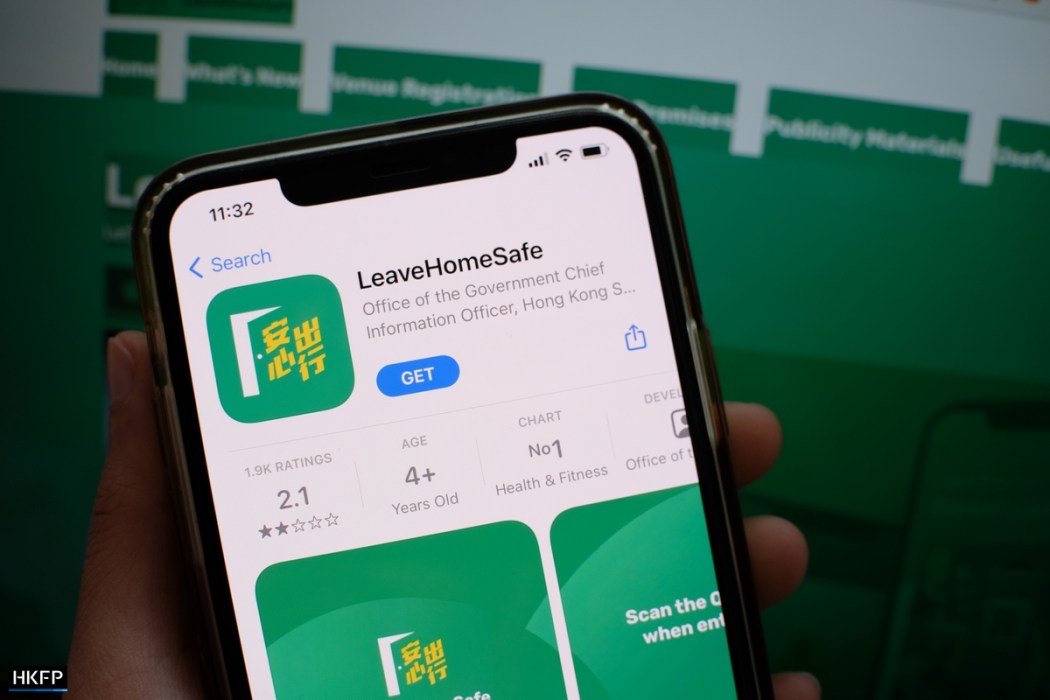
As of Tuesday, the app had been downloaded more than 840,000 times, with over 70,000 public and private venues taking part in the scheme by displaying a QR code, according to the Office of the Government Chief Information Officer.
The office said there was no central system to store user data and the app does not pose a risk to privacy. “Members of the public can feel at ease when using the app.”
‘The whole thing doesn’t make sense’
The owner of a noodle shop called Yat Wun Yat Dip (“one bowl, one plate”) is unconvinced. He decided to suspend dine-in services last December to avoid complying with the requirement to display a “LeaveHomeSafe” QR code at the restaurant. Customers did not have to use the code until Thursday.

The shop owner, who only wished to be identified as M7, said the noodle shop would extend its policy of takeouts only in light of the latest requirements. He questioned the effectiveness of the new policies, saying restaurants and other premises had no means to verify whether contact information was correct.
“That means I may be held liable for things that I don’t have control over. The whole thing doesn’t make sense,” he said.
The Shau Kei Wan-based restaurant, known for its support of the 2019 pro-democracy protests, compiled a list of eateries that adopted a similar no dine-in policy after the government on Tuesday announced plans to ease the social distancing rules.
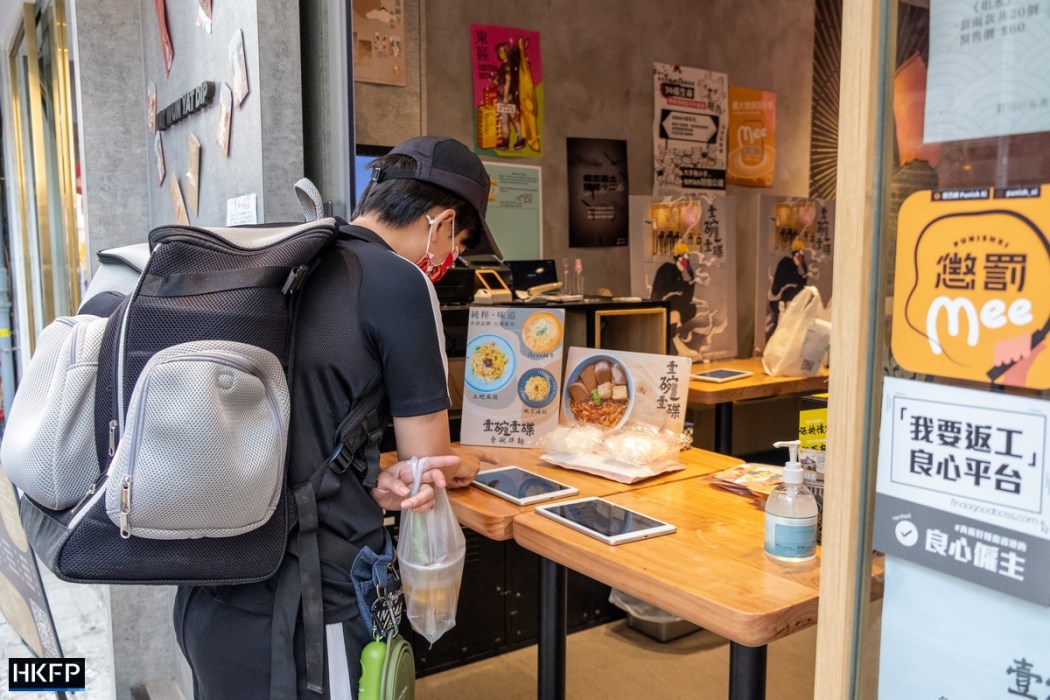
Among the 40 restaurants listed in a Facebook post, some said they were unwilling to offer evening dine-in services, in order to prevent customers from having to scan the code.
“Support yellow shops that resist offering dine-in services at night… never compromise,” the post read. The colour yellow has been linked to supporters of the 2019 protests and the 2014 Umbrella Movement, while the opposing camp is labelled as “blue.”
The list attracted a mixed response online. Some netizens urged people to patronise the premises while others criticised Yat Wun Yat Dip for exposing those “yellow” eateries to the risk of being targeted by the authorities.
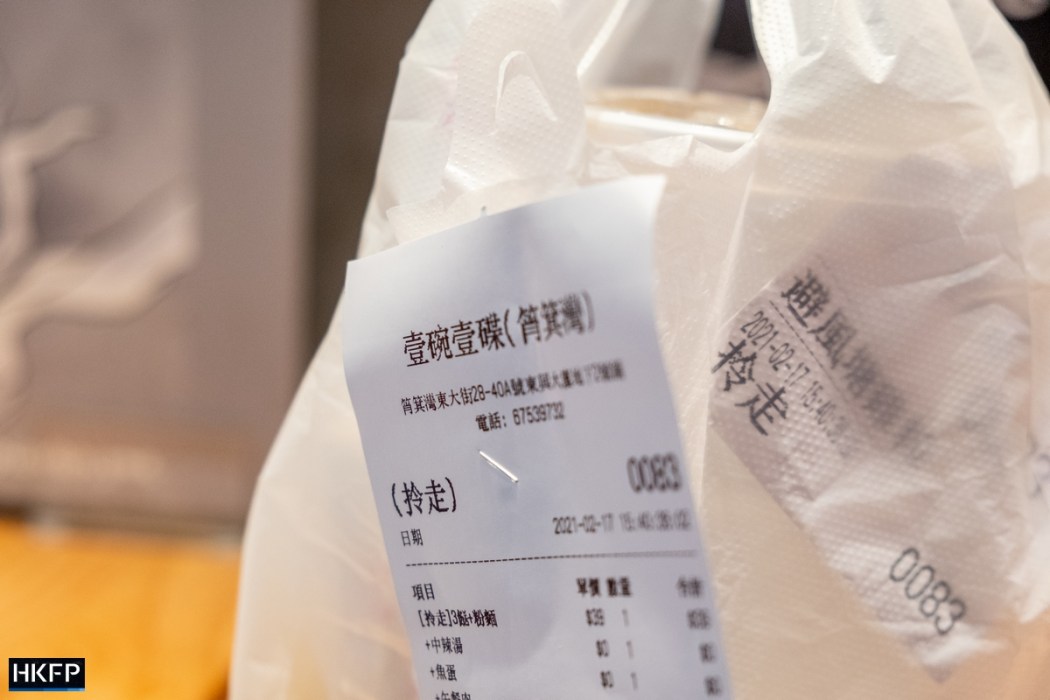
M7 said he had secured the permission of the business owners before putting them on the list and denied it was a politically inspired move.
“It is a commercial decision made in a reasonable and lawful manner… it’s not a way to determine which side a shop is on,” he said.
Similarly, gym owner Tong told HKFP that he did not intend to criticise other fitness centres that chose to follow the government’s requirements before reopening.
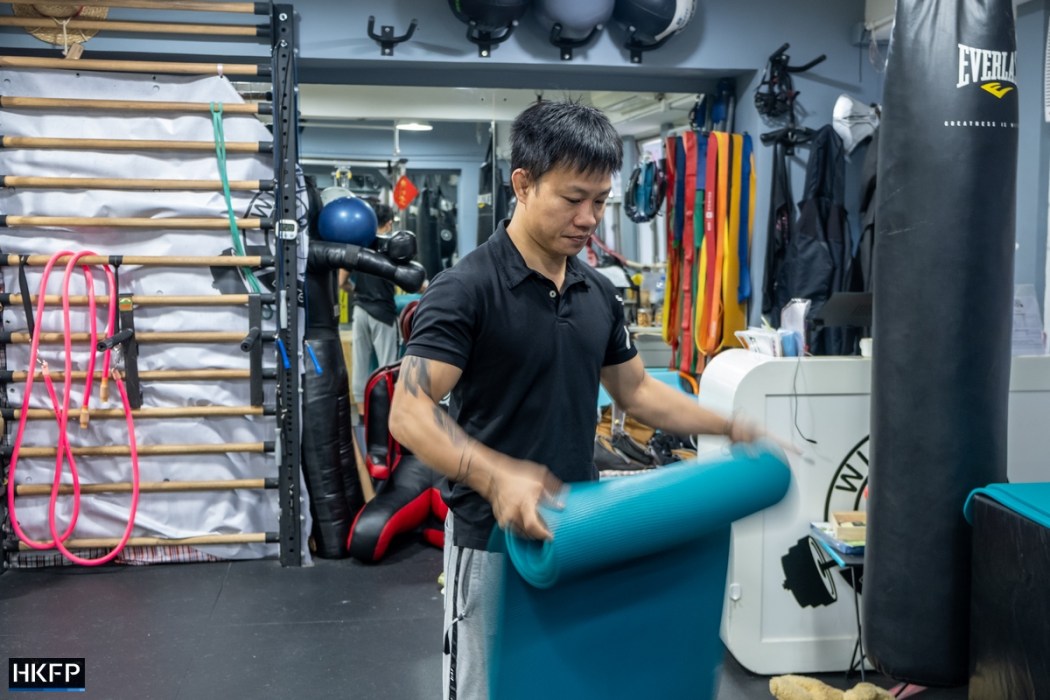
But he urged Hongkongers to reflect on whether they should be disclosing their personal information voluntarily in exchange for goods and services.
“As customers, do you ever think about when we should stop giving out your information?” Tong asked. “If you think you can [hand in your personal data] to make it more convenient for you to consume, you will end up losing more.”
Support HKFP | Policies & Ethics | Error/typo? | Contact Us | Newsletter | Transparency & Annual Report | Apps
Help safeguard press freedom & keep HKFP free for all readers by supporting our team



